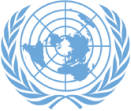Statement by
H.E Dr. Bounfeng Phoummalaysith, Minister of Health of the Lao PDR at the 57th Session of the Commission on Population and Development (CPD57)
New York, 29 April - 3 May 2024
Mr. Chair,
It is my great honor to represent the government of the Lao PDR in this 57th Session of the Commission on Population and Development today.
Since its adoption in Cairo in 1994, the Lao government has incorporated ICPD into our National Social and Economic Development Plans, sectoral strategies, and policies. To ensure their effective implementation, the National Population and Development Policy was established in close collaboration with development partners to deliver transformative results, especially in key areas including zero preventable maternal mortality, zero unmet need for family planning, and zero gender-based violence, harmful practices, and child marriage. In addition, special attention has also been given to demographic transition and harnessing the demographic dividend, empowering the people, especially focusing on the youth and future generations. As we continue to attain the 2030 agenda in the remaining period, the following strategic actions will be taken namely:
First, harnessing the demographic dividend by:
• Developing a multi-sectoral roadmap to accelerate the implementation of the National Population and Development Policy through integration into the National Socio-Economic Development Plan, sectoral plans, and sub-national frameworks.
• Scaling up comprehensive sexuality education and reinvigorating the “Noi framework” and “Noi ecosystem” to empower adolescent girls and boys in partnership with regional and global development partners.
• Prioritizing and integrating population dynamics and mega-trends, such as the demographic transition, disparities, digitalization, and climate change in the next 10th National Socio-Economic Development Plan and,
• Establishing a National Coordination Committee on Population and Development.
Second, addressing climate challenges faced by the health sector and other social sectors by:
• Increasing investments for building a resilient healthcare system, including lifesaving sexual and reproductive health (SRH) and gender-based violence (GBV) response services.
• Generating robust evidence and data focusing on the social and gender dimensions of climate change, including SRH and GBV to inform national strategies and other action plans.
• Establishing a dedicated network of actors on climate change and women’s and girls’ rights, comprising government institutions, private sector and civil society.
Third, improving people’s health and well-being, including their sexual and reproductive health and rights by:
• Increasing investments in family planning and mobilizing partnerships and resources for national family planning programmes through developing a comprehensive family planning strategy and costed implementation plan.
• Increasing investments in midwifery regulations, associations and education through developing a national midwifery strategy and costed-implementation plan.
• Investing in youth-friendly health services inclusive of vulnerable groups.
Fourth, strengthening the population data governance system and national monitoring frameworks for socio-economic development by:
• Prioritizing and ensuring the use of the 2025 Population and Housing Census and surveys to inform the 10th National Socio-Economic Development Plan.
• Investing in evidence generation on mega-trends, such as climate change, demographic transition, disparities and digitalization for strategic policy-making and programming
• Reinforcing the national administrative data governance system, including civil registration and vital statistics, and
Fifth, harnessing and ensuring the use of all domestic resources and actors, including the private sector and civil society in support of policy implementation by using new technologies, science and technology innovations, promoting entrepreneurship and job creation to Leave No One Behind.
Mr. Chair,
In conclusion, I wish to reaffirm the Government of Lao PDR’s strong commitment to fully implement the existing national and subnational population development plans, policies, and strategies aligned with ICPD PoA and SDGs. Towards this end, increased support by the international community remains crucial. I would like, once again to express on behalf of the Lao government, our sincere appreciation to all development partners for the continued support extended to the Lao PDR in the implementation of the national and global development agendas.
I thank you.

